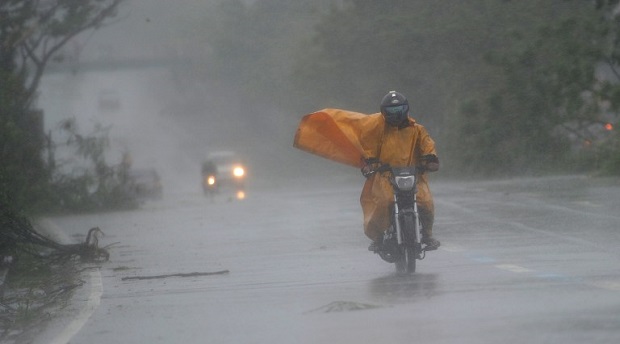DOH: Take precautions vs rainy season diseases
With the onset of the rainy season, the Department of Health (DOH) urged the public to take simple health precautions to ward off sicknesses common at this time of the year like influenza, dengue fever and leptospirosis.
To prevent coming down with influenza, commonly known as the flu, the public is encouraged to get a vaccine against the virus and to eat a healthy diet to boost the immune system,” advised DOH spokesperson Dr. Lyndon Lee Suy on .
“Influenza is really difficult to prevent because we won’t know who actually has it…because a simple cough or cold could actually be the flu already,” Lee Suy told reporters in an interview.
Frequent and proper hand washing can also be one’s defense against the flu virus, he added. “Hand washing can actually work both ways. It will help prevent the spread of the virus if you have it or it will protect you from getting infected,” he said.
Highly contagious, the flu is a year-round disease but it usually peaks during the rainy season.
Article continues after this advertisementOn Tuesday, the weather bureau announced that the rainy season had officially begun although it would likely be cut short by a “moderate to strong” El Niño in the last quarter of the year.
Article continues after this advertisementThe DOH also observed a spike in the number of cases of leptospirosis, usually contracted by wading in flood waters contaminated with animal urine, particularly from rats.
To prevent cases of leptospirosis, Lee Suy encouraged the public to to clean the drainage system in their respective communities to curb flooding.
“Let us make sure that our drainage system is not clogged so that when it rains hard, there won’t be flooding, which is usually the most common source of leptospirosis,” he said.
If wading through floodwaters is inevitable, one must wear boots or cover broken skin or open wounds to reduce the risk of contracting leptospirosis, he advised.
Lee Suy also reminded the public to take precautions against the deadly dengue fever, another year-round problem that peaks during the rainy season.
These safety precautions include searching for and destroying the breeding sites of dengue-carrying mosquitoes, wearing long sleeves, using insect repellants, putting screens on windows and doors, and seeking early medical attention for fevers that last more than two days, he said.
“We don’t have any reason to be complacent against dengue,” said the DOH official.
